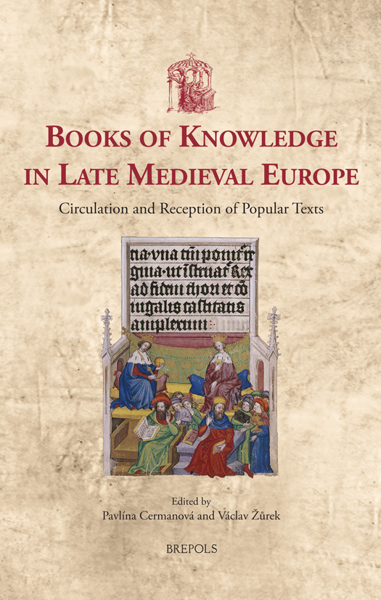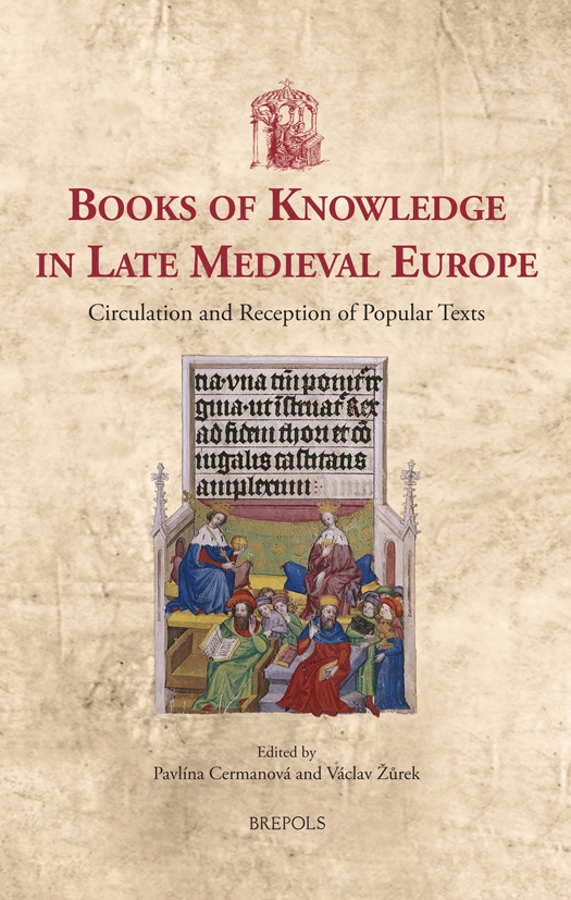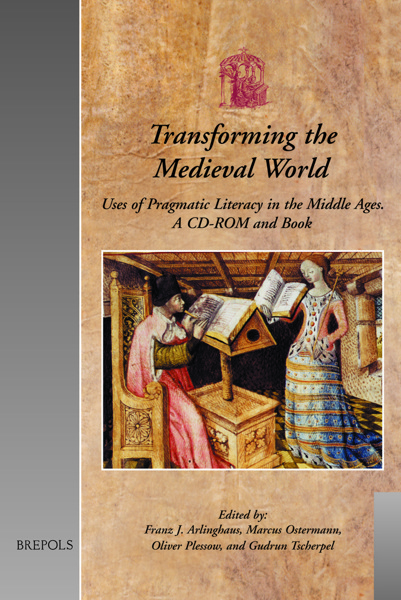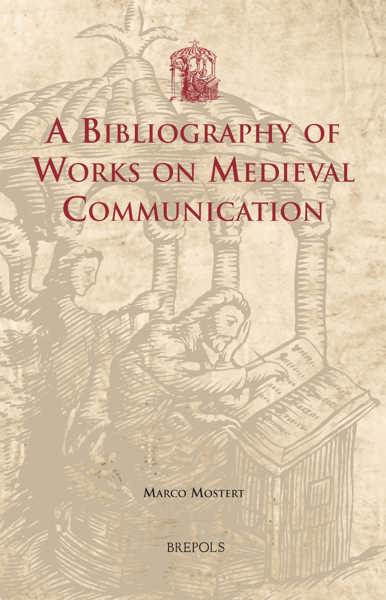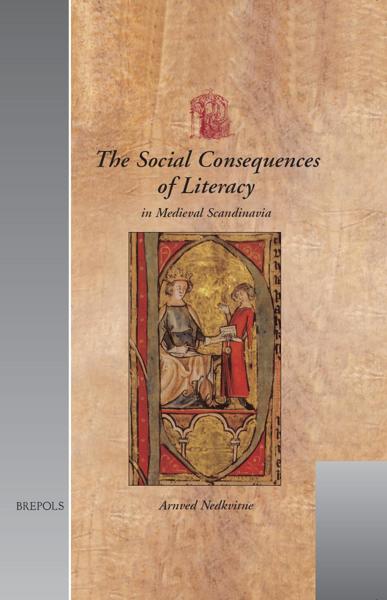
Books of Knowledge in Late Medieval Europe
Circulation and Reception of Popular Texts
Pavlína Cermanová, Vaclav Zurek (eds)
- Pages: xiv + 376 p.
- Size:156 x 234 mm
- Illustrations:22 b/w, 1 tables b/w.
- Language(s):English
- Publication Year:2021
- € 100,00 EXCL. VAT RETAIL PRICE
- ISBN: 978-2-503-59463-7
- Hardback
- Available
- € 100,00 EXCL. VAT RETAIL PRICE
- ISBN: 978-2-503-59464-4
- E-book
- Available
This volume presents a new, complex approach to reading and reading techniques of books mediating knowledge in late medieval Europe
« [Cet ouvrage] ouvre des perspectives intéressantes sur la question de la diffusion des connaissances, en mettant en exergue combien l'écrit a été un outil de savoir majeur dans une société que l'on a longtemps pensée comme dominée par l'oralité d'une part et d'autre part combien le livre de savoir a pu être intelligible à un public plus ouvert que celui restrictif des seuls érudits. » (Anne-Laure Méril-Bellini delle Stelle, in Sehepunkte, 22/09/2022)
“(…) taken as a whole the collection offers several fascinating examples of what is to be gained by paying close attention to how texts circulated (including patterns in what they were bound with) as well as the complex relationship between a text, the manuscript in which it was found, and its users.” (Matt Wranovix, in The Medieval Review, 23.03.22)
"Abschließend lässt sich konstatieren: Die Beiträge liefern in ihrer Summe sehr wertvolle Einblicke zum spätma. Austausch- und Rezeptionsverhalten elitär-intellektueller Schichten (nochmals: v. a. auf Böhmen bezogen). Der Erfolg vieler Werke hing oftmals nicht nur vom Inhalt ab, sondern auch von der illustrativen und/oder didaktischen Aufbereitung, von ihrer Funktion im jeweiligen Überlieferungsträger und von ihrer Zweckgebundenheit an den jeweiligen historischen Kontext." (Grischa Vercamer, Deutsches Archiv für Erforschung des Mittelalters, 80(1), 2024, p. 421)
Pavlína Cermanová and Václav Žůrek are historians and researchers at the Centre for Medieval Studies, Institute of Philosophy of the Czech Academy of Sciences, Prague. In her research, Pavlína Cermanová focuses on the medieval apocalyptic thinking and intellectual history, Václav Žůrek focuses on the medieval historiography and royal representation.
This book provides a series of studies concerning unique medieval texts that can be defined as ‘books of knowledge’, such as medieval chronicles, bestiaries, or catechetic handbooks. Thus far, scholarship of intellectual history has focused on concepts of knowledge to describe a specific community, or to delimit intellectuals in society. However, the specific textual tool for the transmission of knowledge has been missing. Besides oral tradition, books and other written texts were the only sources of knowledge, and they were thus invaluable in efforts to receive or transfer knowledge. That is one reason why texts that proclaim to introduce a specific field of expertise or promise to present a summary of wisdom were so popular. These texts discussed cosmology, theology, philosophy, the natural sciences, history, and other fields. They often did so in an accessible way to maintain the potential to also attract a non-specialised public. The basic form was usually a narrative, chronologically or thematically structured, and clearly ordered to appeal to readers. Books of this kind could be disseminated in dozens or even hundreds of copies, and were often available (by translation or adaptation) in various languages, including the vernacular.
In exploring these widely-disseminated and highly popular texts that offered a precise segment of knowledge that could be accessed by readers outside the intellectual and social elite, this volume intends to introduce books of knowledge as a new category within the study of medieval literacy.
Preface vii
Abbreviations ix
Books of Knowledge – Late Medieval Central Europe and Beyond
PAVLÍNA CERMANOVÁ and VÁCLAV ŽÙREK 1
The Pseudo-Aristotelian Secret of Secrets: Encyclopedia or Book of Knowledge?
STEVEN J. WILLIAMS 11
A Handbook for Everyone? Thomas of Cantimpré’s Book of Bees and Its Circulation in Late Medieval Europe
JULIA BURKHARDT 35
Chess, Moral Principles, and Ancient Stories: The Success of Jacobus de Cessolis’s Liber de moribus and Other Classicising Works in Medieval Bohemia
VÁCLAV ŽŮREK 59
The Pseudo-Bernhardine Epistola de cura rei familiaris and its Reception in Medieval Bohemia and Moravia
PAVEL BLAŽEK and BARBORA ŘEZNÍČKOVÁ 85
From Manual to Best-Seller: The History of Honorius Augustodunensis’s Elucidarium
GLEB SCHMIDT 137
From Theology to Universal Knowledge: The Story of the Elucidarium and its Vernacular Adaptations in the Czech lands (Fourteenth-Fifteenth Centuries)
JAROSLAV SVÁTEK 165
A ‘Book of Knowledge’? The De tribus punctis christianae religionis (1316) by Thomas Hibernicus and its Heyday in Late Medieval Bohemia
LUCIE DOLEŽALOVÁ 183
Patterns of Knowledge in Late Medieval Historiography: The Chronologia Magna of Paolino Veneto
NADINE HOLZMEIER 203
Reading the Early Church: A Witness from Kutná Hora of the Chronicon pontificum et imperatorum by Martin of Opava
VOJTĚCH BAŽANT 229
The Physiologus Theobaldi: A Most Successful Bestiary in Medieval Schools and Monasteries
BAUDOUIN VAN DEN ABEELE 247
Christian of Prachatice’s Latin Herbarium and its adaptations in Old Czech literature
DANA STEHLÍKOVÁ 275
The Aims of Perspectiva in 1360s Paris: Investigating Texts Written in the Hand of Reimbotus de Castro
LUKÁŠ LIČKA 299
Sharing Academic Knowledge: Commentaries on the Secretum secretorum
PAVLÍNA CERMANOVÁ 331
Indices of Manuscripts, Placenames, and Personal Names 361
